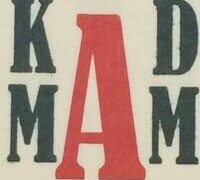The federal government has pleaded with the Academic Staff Union of Universities (ASUU) and other trade unions in the tertiary education sub-sector to call off the perennial strike and embrace genuine dialogue as solution.
This is just as the Joint Admissions and Matriculation Board (JAMB) fixed 140 as minimum cut-off mark for admission into universities in the 2022/2023 academic session and pegged entry qualifications benchmark into polytechnics and colleges of education at 100 respectively.
The Minister of Education, Malam Adamu Adamu, made the disclosures in Abuja on Thursday during the 2022 combined policy meetings on admissions into tertiary institutions in Nigeria which ended on Thursday.
The policy meeting, chaired by the Minister, had all heads of tertiary institutions, heads of regulatory agencies in the sector, and other critical stakeholders such as the chairmen of the committees on education at the lower and upper chambers of the National Assembly in attendance.
Adamu said, “I urge the leadership of tertiary institutions to partner with the Federal Government in its frantic efforts at restoring industrial harmony into tertiary institutions in Nigeria.
“It is clear that stable academic calendar is required for quality education and development in Nigeria.
“I also seize this opportunity to appeal to the trade unions in the tertiary education sub-sector to, in the interest of the future of Nigeria, call off the perennial strike and embrace genuine dialogue as solution to our problems.
“It is my pleasure to declare open the 2022 Policy Meeting on admissions to tertiary institutions in Nigeria for a better and more prosperous future of the nation,” he said.
The Minister further charged institutions to comply with the policy directives as decided at the meeting, saying that any infringement of any of the policy guidelines would be meted with appropriate sanctions.
He said the federal government had in 2017 introduced the Central Admissions Processing System (CAPS) to eradicate the primeval activities around admission procedures towards nuzzling transparencies and accountabilities on admissions, saying that it will continue in the 2023 admissions process.
“This implies that all applications for regular and non-regular admissions to tertiary institutions must be routed through the Joint Admissions and Matriculation Board in conformity with its enabling law. I am aware that JAMB issues specific Advisories to guide different aspects of the process. I therefore urge every Institution to comply with those advisories in the interest of the sector,” he added.
He said the introduction of the mandatory National Identification Number (NIN) for JAMB registration has yielded a positive impact as a potent instrument in the fight against examination malpractices.
The JAMB’s registrar, Professor Ishaq Oloyede, who announced the cut-off marks after a thorough debates and votes by vice chancellors of universities, rectors of polytechnics and provosts of colleges of education, said every institution has the right to fix its own cut-off mark even up to 220 but no one would be allowed to go less than the agreed minimum marks of 100 for colleges and polytechnics and 140 for universities.





